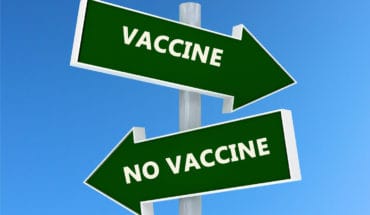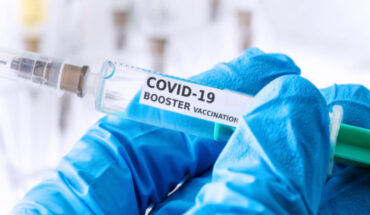Lung cancer patients are more likely to worry about receiving bad news if offered a virtual (video or telephone) appointment, says a new report published today1 (26th November 2020) – supported by the Roy Castle Lung Cancer Foundation, British Thoracic Oncology Group, Lung Cancer Nursing UK and UK Lung Cancer Coalition.
The report, which examines patients and health professionals’ perspectives on the increased use of virtual consultations in response to COVID-19, reveals around half of lung cancer patients would be ‘worried’ or ‘extremely worried’ if offered a video or telephone appointment (50 and 41 percent respectively) during the pandemic. Nearly all patients (95 per cent), who were surveyed as part of the report, stated that meeting face-to-face was by far the best method of communicating their diagnosis – as well as having an initial consultation.
“Every patient worries about getting bad news and for healthcare professionals breaking bad news is one of the hardest aspects of their job. Virtual consultations are simply not appropriate in this situation, particularly as lung cancer patients tend to present at the late stage of their disease. Being told you have lung cancer, or your disease has become incurable is life-changing news – a phone or video consultation is not the right way to find out,” says Lorraine Dallas, Director of Information, Prevention and Support, Roy Castle Lung Cancer Foundation.
Since the beginning of the pandemic, the report concludes that most consultations have moved to virtual, with 92 per cent of patients having at least one conversation with their nurse or hospital physician virtually. Yet, the majority of virtual appointments have been by telephone (90 per cent) – with only 13% of lung cancer patients receiving video consultations.
“The fact that video is so seldom used to deliver virtual consultations may surprise some people – but not those working within NHS hospitals,” says Professor Sanjay Popat, Consultant Thoracic Medical Oncologist, Royal Marsden NHS Foundation Trust, and Steering Committee Chair, the British Thoracic Oncology Group.
The report states nearly seven out of ten (69 per cent) patients were not given a choice between telephone or video – and more than three quarters (76 per cent) of healthcare professionals surveyed said they had not received any training or guidance for delivering virtual appointments. Almost two-thirds (65 per cent) of health professionals said lack of computer equipment to hold video consultations was a regular problem.
“This survey exposes some of the huge infrastructure changes that need to happen to make video consultations workable long-term in both secondary and tertiary lung cancer care settings,” adds Professor Popat.
However, of those patient respondents who had received a video consultation, many saw clear advantages with nearly three-quarters (71 per cent) citing it was more convenient e.g. allowing them to avoid travelling into hospital, and could see the untapped potential, especially for routine appointments.
While 75 per cent of healthcare professionals agreed that video consultations were more convenient for patients – conversely, only 30 per cent said they were more convenient for them. Disadvantages include the inability to share visual material such as scans with their patients; difficulties in assessing a patient’s physical condition virtually; and the lack of quiet, private, meeting spaces in a hospital to be able to deliver video consultations.
As a result, the report highlights a series of key considerations to help improve the use of virtual consultations, and develop best practice tools – not only for lung cancer, but other cancer services and the wider NHS:
- Further research is needed into the use of virtual consultations involving patients who do not have computer access, or feel confident in using them, to ensure health inequalities are not being exacerbated
- Healthcare professionals should be provided with training to support both communication and technical aspects involved in the delivery of virtual consultations
- Given the often, late stage, diagnosis and urgency that comes with it, there is a need for lung cancer-specific best practice guidelines which go beyond current general clinical guidance for the management of remote consultations.2,3
- Resource will be needed if NHS Trusts are to invest in the technology needed to make virtual consultations an integral part of the patient pathway.
“When the COVID-19 pandemic hit, healthcare professionals across the NHS went to extraordinary lengths to keep patients as safe as possible,” says Martin Grange, Chair of the UK Lung Cancer Coalition. “In the right circumstances, and with the necessary infrastructure and support for health professionals, virtual consultations can offer patients quicker access to the expertise that is required in delivering some aspects of their care.”
To download a copy of the report, visit: www.roycastle.org www.uklcc.org.uk www.btog.org www.lcnuk.org
References
- Virtual consultations in the lung cancer pathway – what works for patients and healthcare professionals? Report supported by Roy Castle Lung Cancer Foundation, British Thoracic Oncology Group, Lung Cancer Nursing UK and the UK Lung Cancer Coalition. November 2020. Accessed from 26th November 2020 here: www.roycastle.org www.uklcc.org.uk www.btog.org www.lcnuk.org
- NHS England and NHS Improvement, Clinical guide for the management of remote consultations and remote working in secondary care during the coronavirus pandemic, 27 March 2020. Available at: https://www.england.nhs.uk/coronavirus/wp-content/uploads/sites/52/2020/03/C0044-Specialty-Guide-Virtual-Working-and-Coronavirus-27-March-20.pdf
- British Medical Association (2020). COVID-19: video consultations and homeworking. Available at: https://www.bma.org.uk/advice-and-support/covid-19/adapting-to-covid/covid-19-video-consultations-and-homeworking
- Figures from Cancer Research UK, accessed Aug 2020 and available at: https://www.cancerresearchuk.org/health-professional/cancer-statistics/statistics-by-cancer-type/lung-cancer/mortality
- Figures from Cancer Research UK, accessed Aug 2020 and available at: https://www.cancerresearchuk.org/health-professional/cancer-statistics/mortality/common-cancers-compared#heading-Zero
- Lung cancer in never smokers: a hidden disease. Peake M et al. Accessed August 2020 at: https://journals.sagepub.com/doi/full/10.1177/0141076819843654
About the report:
The report is the culmination of two, separate, online surveys – a patient questionnaire supported and disseminated by the Roy Castle Lung Cancer Foundation (RCLCF) – and a healthcare professional survey, overseen and distributed by the British Thoracic Oncology Group (BTOG), Lung Cancer Nursing UK LCNUK and UK Lung Cancer Coalition (UKLCC). Both surveys, and the report, were funded by MSD. The four, survey partner organisations were supported by healthcare policy consultants Incisive Health and market research consultancy, Healthcare Research Worldwide (HRW).
The online surveys were carried out between 29 September to 19 October 2020 and over 200 individuals participated: 105 patient and carers and 80 health care professionals (the majority working in secondary and tertiary care).
Over a quarter (26%) of patients who participated in the survey were diagnosed just prior to lockdown and during the first three months of the pandemic. Learnings from the surveys are intended to help create practical tools and best practice guidance which can be used as a blueprint for virtual working not only within the lung cancer community but also by other medical specialities.
About lung cancer
Lung cancer is the UK’s biggest cancer killer with 35,300 deaths each year (97 people every day or one person every 15 minutes) which is more than deaths from bowel cancer, prostate cancer, and liver cancer, combined.4.5Half of all people diagnosed with lung cancer die within six months.Lung cancer accounts for more than a fifth of all UK cancer deaths (21%) and in never smokers is the 8th most common cause of cancer-related death in the UK.6 However, lung cancer can be cured if diagnosed early enough.
Roy Castle Lung Cancer Foundation
Roy Castle Lung Cancer Foundation is the only UK lung cancer charity dedicated to helping everyone affected by the disease – from diagnosis, through treatment, living with the disease and end of life care. Since it was established in 1990, it has funded millions of pounds of essential lung cancer research. Much of its focus is on raising awareness of lung cancer and challenging the misconceptions that exist around the disease. For more information, visit https://www.roycastle.org
British Thoracic Oncology Group
The British Thoracic Oncology Group’s (BTOG’s) mission is to support and educate thoracic oncology healthcare professionals, creating a professional community to exchange ideas, information, and innovation and to foster the development of research. The overall aim is to represent the needs of people with thoracic malignancies in the UK and ensure they have equitable access to optimal care. BTOG’s vision is to contribute to achieving survival rates equal to the best in the world. For more information, visit https://www.btog.org/
Lung Cancer Nursing UK
Lung Cancer Nursing UK (formerly the National Lung Cancer Forum for Nurses) was established in 1998 with the primary objective of providing networking and support for lung cancer specialist nurses. More latterly it has focused on activities such as education and best practice sharing as well as improving understanding of the expertise and professionalism of specialist nurses among the wider clinical community and policy makers. For more information, visit https://www.lcnuk.org
UK Lung Cancer Coalition
The UK Lung Cancer Coalition (UKLCC) is the UK’s largest multi-interest group in lung cancer. It was set up in 2005 with the founding ambition to tackle poor lung cancer survival outcomes and, specifically, to double five-year survival by 2015, which was effectively achieved. The UKLCC has published numerous milestone reports including ‘25 by 25 – a ten-year strategy to improve lung cancer survival rates’ – calling for a re-doubling of five-year lung cancer survival rates to 25 per cent by 2025. The UKLCC’s membership includes leading lung cancer experts, senior NHS professionals, charities and healthcare companies with an interest in fighting the disease. For more information, visit www.uklcc.org.uk
MSD
MSD is a trade name of Merck & Co., Inc., with headquarters in Kenilworth, N.J., U.S.A. We demonstrate our commitment to patients and population health by increasing access to health care through far-reaching policies, programmes and partnerships. Today, MSD continues to be at the forefront of research to prevent and treat diseases that threaten people and animals – including cancer, infectious diseases such as HIV and Ebola, and emerging animal diseases – as we aspire to be the premier research-intensive biopharmaceutical company in the world. For more information, visit www.msd-uk.com
- New lipid-based pathway discovered as key to memory formation - 25th June 2025
- Crucial link could explain how Alzheimer’s takes hold - 25th June 2025
- Understanding Your Mind Can Improve Daily Life - 25th June 2025






